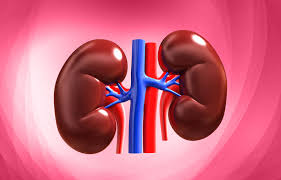Globally, an estimated 850 million people suffer from kidney disease, primarily Chronic Kidney Disease (CKD). This condition affects more than 10 per cent of the world’s population, and it is a significant cause of death, with mortality rates continuing to rise, particularly in low and middle-income countries.
Unlike many other non-communicable diseases, CKD-related deaths have been increasing over the past two decades, and it is projected to become the fifth leading cause of death globally by 2040, an increase from its status.
In Nigeria, kidney disease is a significant health concern, affecting millions of people. According to recent estimates, about 20 to 25 million Nigerians are living with Chronic Kidney Disease (CKD), with high prevalence rates in many areas. The prevalence of CKD in Nigeria has been reported to range from 1.6 per cent to over 26 per cent in different studies, with the North-West region showing particularly high rates in a recent review.
These staggering statistics, no doubt, highlight the obvious need for increased awareness, prevention, and treatment Therefore, the bold and encouraging steps taken by the Delta State Governor, Rt. Hon. Sheriff Oborevwori administration aimed at providing succour to patients of kidney-related diseases is commendable.
One of such steps was the state government’s decision to reduce the cost of dialysis treatment in state-owned hospitals from over ₦70,000 to ₦45,000, which the Commissioner for Health, Dr Joseph Onojaeme, explained was to ease the financial burden on patients battling kidney-related ailments. Besides, the Governor approved the procurement of eight new dialysers for government hospitals, in addition to investment in Magnetic Resonance Imaging (MRI) and Computed Tomography (CT) scan machines to curb the stress of residents travelling long distances within and outside the country for medical diagnosis.
Oborevwori’s gesture comes on the heels of the reduction of the cost of dialysis in Federal Government hospitals across the country from the previous N50,000 to N12,000, meant to bring relief to patients with kidney-related disease by the Federal Government.
We commend these people-oriented policies and programmes aimed at reducing the cost of undergoing dialysis for patients. Kidney failure is a debilitating disease that is diagnosed more often at a terminal stage. The most common causes of kidney disease are diabetes and high blood pressure. Other major causes include infections like HIV, hepatitis, and urinary tract infections, as well as genetic conditions such as polycystic kidney disease, autoimmune diseases, excessive use of certain medications, and conditions that lead to recurrent dehydration or kidney stones.
Unfortunately, and in contrast to the federal government and Governor Oborevwori’s gesture, some Nigerians, including medical personnel, have devised means of exploiting the victims. There were also complicated cases of young people being lured to hospitals with the intent to harvest their kidneys to treat victims. Another detestable and disheartening case involves criminals abducting people with the disgusting aim of harvesting their kidneys for sale.
This is abominable. And, to alter this negative narrative, therefore, it is our considered view that stakeholders in the health sector should ramp up advocacy campaigns for early detection of kidney-related ailments and public education on kidney health.
In addition, it is equally important for patients with underlying health conditions like diabetes and high blood pressure to effectively manage such conditions by seeking proper medical attention. On its part, the government at all levels should invest in addressing the challenges to save citizens from predictable deaths by ensuring that health professionals are encouraged to work in Nigeria rather than embracing the Japa syndrome.
We commend the disposition of Governor Oborevwori, especially for providing additional state-of-the-art medical equipment in state-owned hospitals.
This, no doubt, would boost healthcare delivery in the state and subsequently enhance productivity as a healthy populace would, unarguably, contribute to the growth of the economy.
For the optimum utilization of the machines, the authority should deploy responsible personnel to manage them and ensure that a maintenance culture is embraced.
More importantly, they should ensure equity and fairness in rendering the needed services to the patients. Finally, we call on other subnational governments in the country to emulate the Delta example.


